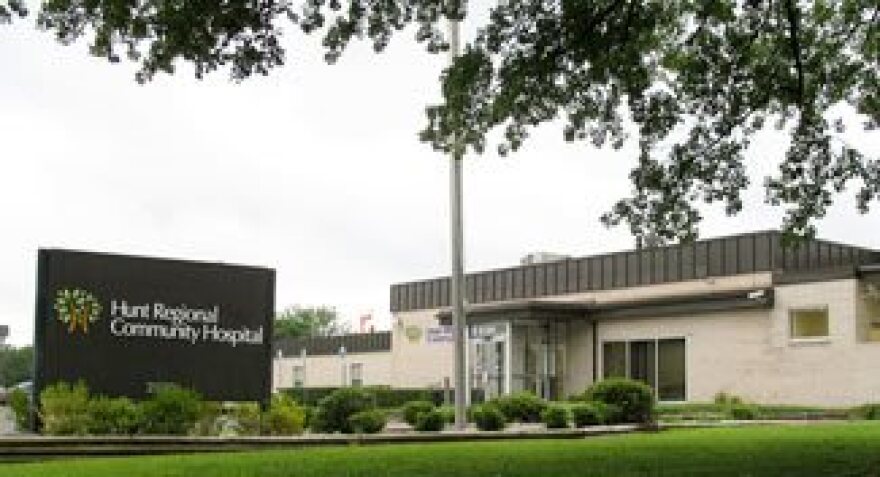A federal agency’s recommendation for Medicare could spell trouble for the hospitals in Bonham, Commerce and Winnsboro.
Audio transcript
Haslett: A possible change in federal Medicare policy could have serious consequences for hospitals in Northeast Texas. There’s a proposal that would reduce the rate of reimbursements that hospitals receive from patients using Medicare. Health care providers get money from Medicare on a patient-by-patient, service-by-service basis. Hospitals bill Medicare and then get a reimbursement, just as they would from a private insurance company. The reimbursement rates are set by the federal government. The story of the current situation has its origins during the Reagan administration.
McBeath: Due to some changes in the way Medicare paid hospitals during the 1980s, we saw a thousand hospitals across the country close. We saw a number of small, rural hospitals in Texas close. So the federal government and the United States Congress, in attempting to essentially stop the bleeding - they realized that small-volume, rural hospitals were very different. And they really didn’t have, in many cases substantial enough patient volume to stay financially solvent.
Haslett: That’s Don McBeath of the Texas Organization of Rural and Community Hospitals.
McBeath: So, they created a special program that is known as the Critical Access Hospital program. The most basic criteria to qualify for this program is you must be a hospital of 25 beds or less and you must be 35 miles from another hospital. So you would essentially be the only game in town, the only access to health care, and it would be critical that you keep your doors open.
Haslett: They government increased the rate of Medicare reimbursement for these rural, low-volume hospitals.
McBeath: It was a great program for what essentially was a small investment on the federal government’s part in terms of the total Medicare program across the country. It made these small, rural hospitals financially viable and they were able to keep their doors open.
Haslett: In Texas, however, there was one problem with the Critical Access Hospital program. The criterion that the hospital be 35 miles or more from the nearest facility excluded a lot of Texas hospitals that really were the type of facilities designed to benefit from the program – rural, low-volume hospitals that are the one local resource when people have an emergency. So, the government allowed states the option of waiving the mileage requirement on a case-by-case basis so that those hospitals could qualify.
McBeath: And so what ultimately happened in the state of Texas, we would ultimately have 80 of these Critical Access Hospitals designated. 60 of the 80 hospitals were less than 35 miles apart. So the special waivers, the special mileage waivers, enabled those 60 hospitals to receive the special payments and keep their doors open. The program has worked well for many, many years.
Haslett: Fast forward to this year, when aU.S. Department of Health and Human Services recommendation has suggested re-imposing the 35-mile limit on all hospitals wanting to qualify for the higher Medicare payments.
McBeath: And the problem is, if this plan were to truly become reality, 60 of those 80 rural Critical Access Hospitals in Texas would overnight receive lower payments from Medicare. It would put them deeply in the red and most of those 60 hospitals would probably close within a year of being under the new, reduced-payment system.
Haslett: McBeath says that three hospitals in the KETR listening area are among those that would lose Critical Access status if the mileage waiver were removed. Those hospitals are Mother Frances Hospital in Winnsboro, Red River Regional Hospital in Bonham and Hunt Regional Community Hospital at Commerce. The suggested funding reduction, as yet, has not made it into any legislation.
McBeath: It would take a bill in Congress to make the changes that are proposed. But the proposal is only in a plan that was released by the inspector general of the U.S. Health and Human Services Department.
Haslett: The suggested changes have nothing to do with either the Affordable Care Act or Texas state policy on health care. Instead, they’re part of the federal government’s overall strategizing to reduce Medicare spending. McBeath says that administrators of rural Texas hospitals and others will keep a close eye on Washington to see whether the proposed funding reductions are included in any legislation. For KETR news, this is Mark Haslett.



